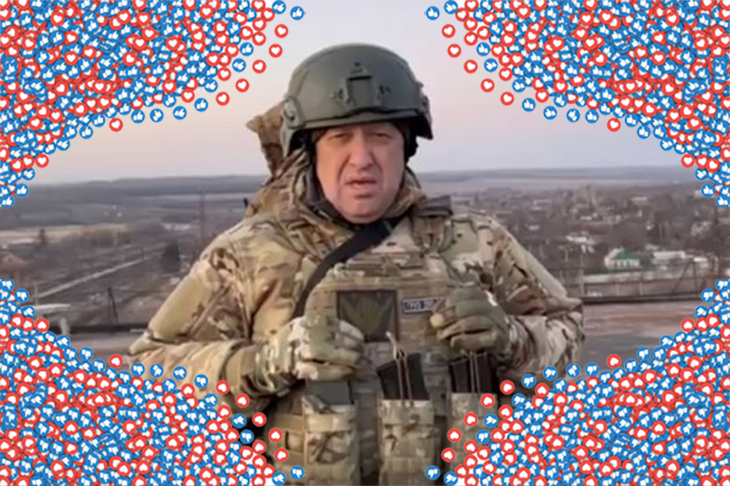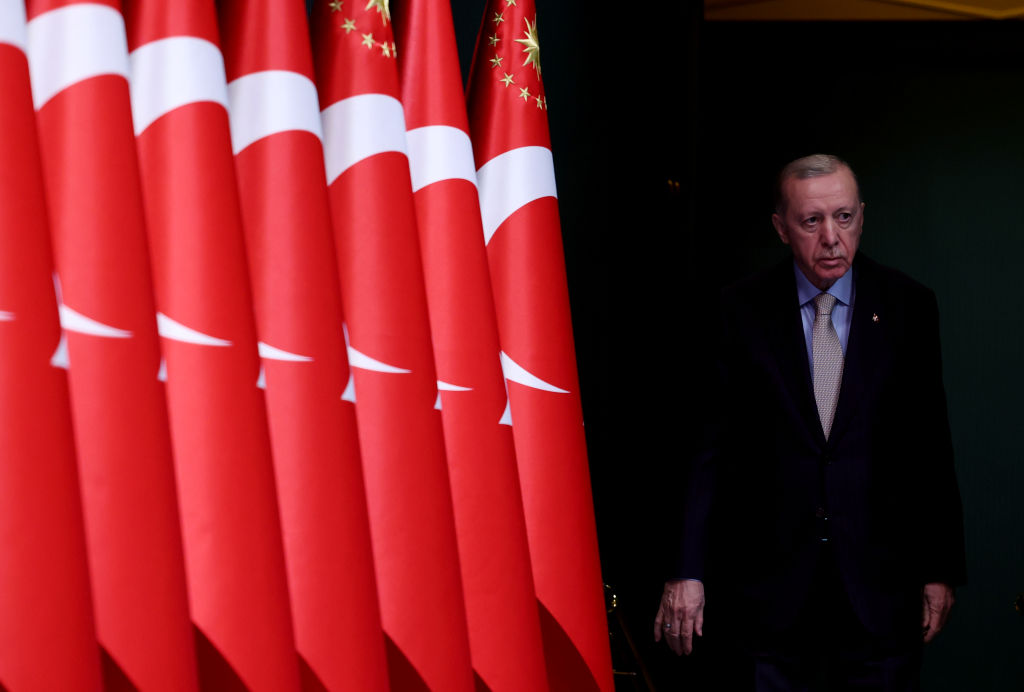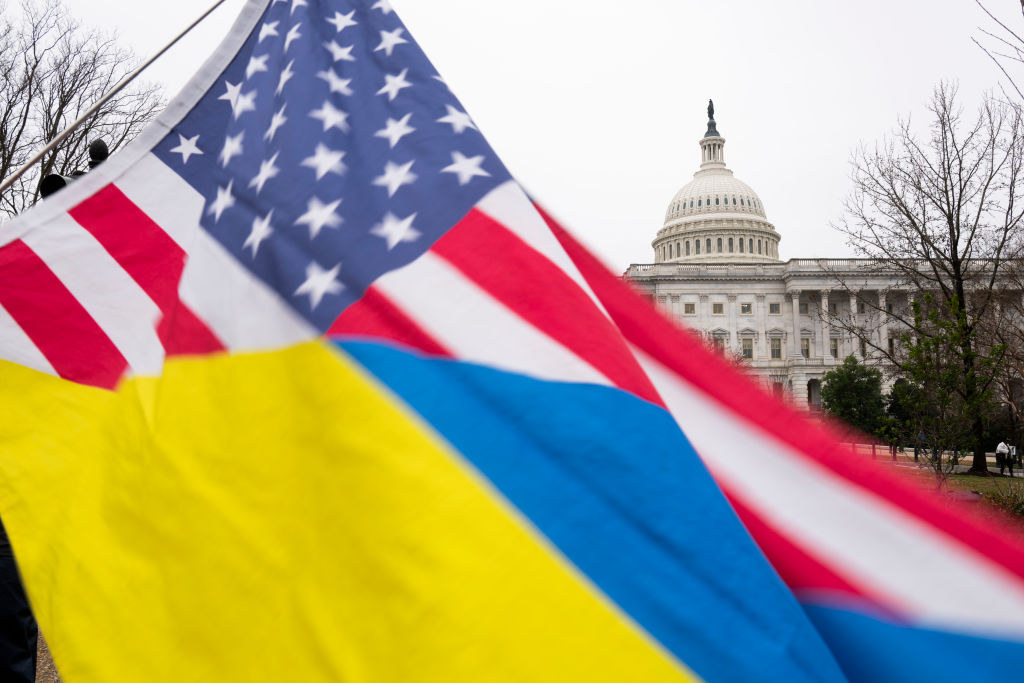How did Yevgeny Prigozhin, the hot dog vendor-cum-leader of the Wagner private military company, become addicted to the allure of likes, retweets and digital validation? From the outside looking in, the warlord posts like a rich kid splayed over his dad’s Porsche — except rather than a swanky car, Prigozhin brags of the travails of the world’s deadliest private military, replete with tanks and artillery.
The early war days of PMC Wagner’s social media presence could be compared to that of ISIS or other paramilitary groups: the posts had a clear agenda, including intimidation, like the “hammer of revenge” video they circulated over Telegram, which documented the brutal murder of Yevgeny Nuzhin, a former Wagner Group member. Prigozhin defended his decision to circulate this video as “a dog’s death for a dog.” Broadcasting a LiveLeak-tier murder isn’t necessarily a PR strategy that’s widely employed these days, but in a brutal modern conflict, it’s well within the realm of what you might expect.
Things really took a turn for the strange with Prigozhin, however, when ammunition supplies in Bakhmut were limited. In response, Prigozhin attacked Russian military leadership in a graphic and emotional vlog on Telegram amid the corpses of dead Wagner soldiers. Prigozhin isn’t simply “some guy” who’s camping without supplies — and this isn’t exactly standard practice for a military leader in the twenty-first century.
Again, this is a war, not a feud between Trisha Paytas and Ethan Klein or Logan Paul and whoever, where internet-addled audiences of millions froth at the mouth waiting to see who has the better “clap back.” There’s a reason, that frankly should be obvious, why not everything is televised in war.
Also underappreciated for just how woefully off-the-rails it was: Prigozhin’s Wagner-branded (branded!) Bakhmut victory announcement… which bore the hallmarks of a sponsored post. Why did Prigozhin feel he had to announce this on his Telegram? Why did he not wait for defense minister Sergei Shoigu or other official Russian government communications tools? The answer, oddly enough, seems to be clout: Prigozhin wanted to ensure that his followers — dare we call them stans? — knew who really won Bakhmut.
Yet nowhere has Prigozhin’s vlogging instinct been more prominent than on Russia’s very own January 6: the “coup” Prigozhin staged this weekend. Not only was the “coup” a total flop but look at the way he conducted himself. Constant video updates; incessant winks at the audience. Per the Financial Times: “Prigozhin’s press office told Russian broadcaster RTVI on Sunday afternoon that the warlord ‘says hi to everyone and will answer questions when he has good [cell phone] reception.’” Don’t forget to comment guys…
It’s not just Prigozhin: in the earliest days of the conflict, Ukraine anthropomorphized itself through Twitter, urging followers to do things like “Tag @Russia and tell them what you think about them,” and condemning (canceling?) major corporations such as Coca-Cola who wouldn’t distance themselves from Russia through social media shaming. The invasion felt less like a traditional conflict and more like a savage brand battle, where the lives of civilians just happened to be at stake.
Perhaps the “messiness” of Prigozhin’s social-media behavior is due to none of his decisions being “real” in the traditional sense of the term. His videos could all be performance as a political move that we, the audience, aren’t privy to. But it seems likelier that Prigozhin is the grim logical conclusion of the last decade or so of political leadership, where everyone has to have a touch of Hollywood to them. You can draw a straight line from the twee viral videos President Obama made for BuzzFeed to Prigozhin’s climbdown vlog on Saturday, which had more than a whiff of “canceled YouTuber apologizes to fans, promises to work on himself” about it.
Everyone, from politicians to warlords to journalists, now needs to be a social media personality to achieve their aims. Gruesomely, a part of warfare is sashaying through piles of corpses, the brutal murders of POWs and broadcasting attempted coups with your smartphone, ready to update your rapidly growing follower count. Frankly, we could all do with a bit less screen-time. Prigozhin went quiet for a day or two since calling off his march on Moscow. For once, he’s leading by example.

























